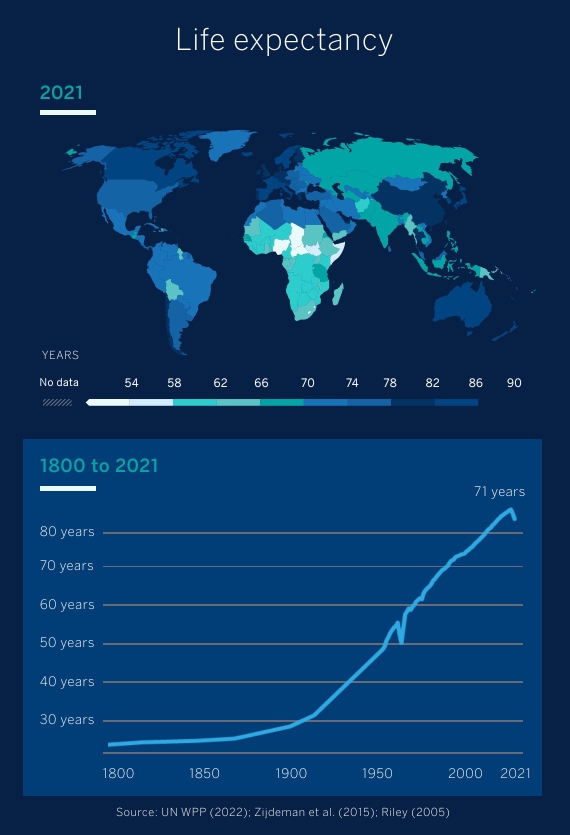If certain claims are to be believed, it would seem that science is taking humanity to the brink, if not of immortality, then at least of a life so long that we will have plenty of time to grow bored of it. After all, they say, we used to live for 40 years, and today we live twice as long. The factors of ageing are now infinitely better understood, so why not hope that scientific progress in the course of this century will lead to a similar or even more spectacular extension of longevity?
But there is an important distinction to be made between life expectancy and longevity. It is true that until 1800 the average life expectancy was less than 40 years, and today it is around 80. This doesn’t mean that in the past it was difficult to reach 50, but rather that infant mortality was very high and many young people died of hunger, war or disease, which reduced the average life expectancy. Longevity, on the other hand, is the limit that the human body can reach if no other obstacle prevents it. But what is the limit, does it exist, and can it be increased?

The person who has reached the oldest confirmed age was Jeanne Louise Calment of France, who died in 1997 at the age of 122. Since January 2023, the oldest verified living person has been Maria Branyas of Spain (born in San Francisco, California), who will be 116 this year. Since the mid-20th century, medicine and improvements in nutrition and quality of life have lengthened life in old age. But while the number of supercentenarians—people over 110—has increased exponentially, the age they reach has not, suggesting that longevity has not been significantly extended. For some, this figure suggests that we are close to the limit, around 115 years. Others put it as high as 120-150 years of age, while some argue that we don’t yet know the limit and that science has room for manoeuvre.
Living a thousand years
It is true that we know a lot more about ageing today. But do we know enough? Telomeres, the ends of chromosomes, play a central role in cellular senescence (ageing). And while scientists are working to counteract telomere shortening with age—a promising line of research—there are many other factors that may be limiting. Some studies suggest that although we can keep our brains younger for longer, neurodegenerative diseases are an evolutionary toll to pay for our highly developed brains.

Nevertheless, voices such as that of biomedical gerontologist Aubrey de Grey argue that we could live for a thousand years. His proposal, Strategies for Engineered Negligible Senescence (SENS), has been criticised by various experts for failing to have made any significant advances, and has even been labelled pseudoscience. But there is a proliferation of biotech companies dedicated to trying to extend human life, some of them backed by well-known tycoons. The debate goes on, and it would be a good sign if we lived to see it continue into the next century.
Comments on this publication